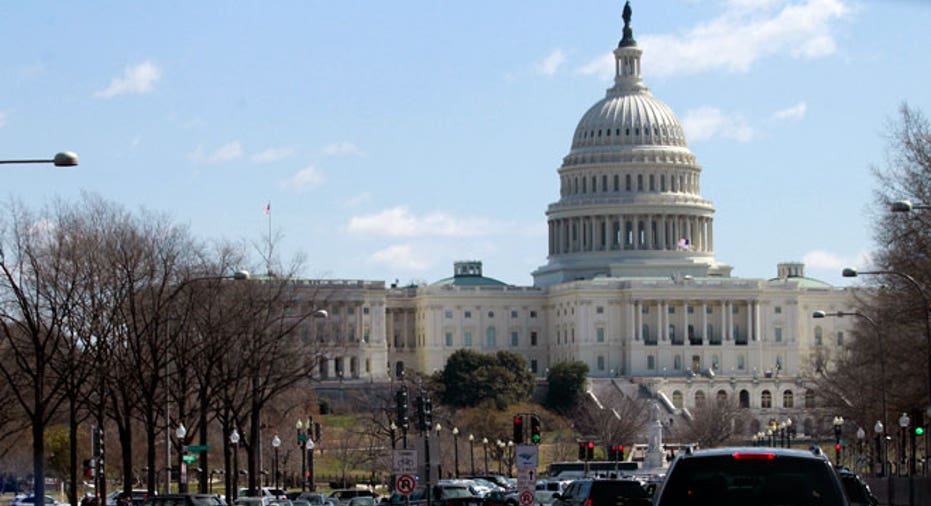Will the Innovation Act Stop Patent Abuses?

On Tuesday, the House will hold a committee hearing on the Innovation Act, introduced last week by House Judiciary Committee Chairman Bob Goodlatte (R-VA).
According to a release from Chairman Goodlatte, the Innovation Act builds on the patent reforms achieved by the America Invents Act. The America Invents Act was signed into law in 2011 and has been called the most significant patent reform in more than half a century, switching the U.S. patent system to a “first to file” process.
With the Innovation Act, Chairman Goodlatte and his bipartisan cosponsors, including Reps. Peter DeFazio (D-OR), Howard Coble (R-NC) and Zoe Lofgren (D-CA), are turning the spotlight on so-called “patent trolls,” or non-practicing entities making money by suing entrepreneurs for allegedly infringing on the patents held by the trolls.
“Abusive patent litigation is a drag on our economy. Everyone from independent inventors, to start-ups, to mid and large sized businesses face this constant threat. The tens of billions of dollars spent on settlements and litigation expenses associated with abusive patent suits represent truly wasted capital – wasted capital that could have been used to create new jobs, fund R&D, and create new innovations and technologies,” reads the release. “The bipartisan Innovation Act is designed to eliminate the abuses of our patent system, discourage frivolous patent litigation and keep U.S. patent laws up to date.”
A Step in the Right Direction?
Daniel Nazer, a staff attorney and policy analyst with the Electronic Frontier Foundation, which advocates on behalf of innovators and entrepreneurs, says patent trolling has become a major issue in the United States.
“In 2012, more than half of all patent cases were by non-practicing entities, or patent trolls,” says Nazer, who says the issue has become pressing for legislators of both parties as more and more small businesses find themselves caught in the crosshairs.
Nazer says the Innovation Act would force patent-holders to identify the ways in which defendants infringe on patents, making it more challenging for less-than-scrupulous patent trolls to launch lawsuits. Patent-holders will also need to reveal more about their companies, investors and owners when filing suits, which may dissuade some trolls.
Additionally, the law proposes forcing the prevailing party to recover attorney’s fees and costs – a good thing, since Nazer says many small businesses simply decide to pay off trolls rather than fight them in court.
“The worst players will file frivolous lawsuits demanding $50,000 and the defendant is faced with spending $1 million to defend and win or paying $50,0000. It’s a business decision,” says Nazer. He says the Electronic Frontier Foundation supports the Innovation Act, calling it “well-drafted” to target trolls.
Could the Innovation Act Actually Hurt Entrepreneurs?
A number of intellectual property attorneys say the law would be a blow to patent trolls, but entrepreneurs and small business owners who are meant to benefit could also take a hit.
“Although the driving force or motivation for this legislation is to go after patent trolls, there are very few provisions, if any, that single out non-practicing entities,” says Foley & Lardner IP attorney Andy Baluch. “It applies generally to all patent owners and all patent litigants.”
For instance, PetChatz CEO Lisa Lavin says her company’s two-way pet communication technology startup holds three patents, with more patents pending.
“It’s very expensive and very long and very challenging,” says Lavin, referring to the patent process. Now that the company has secured the patents, however, there are a number of startup competitors who are trying to enter the space. Lavin says it’s her fiduciary responsibility to investors and supporters to pursue legal action if anyone infringes upon the company’s patents.
Edward Naughton, an IP litigator and partner at Brown Rudnick, says the law is “really anti-patent plaintiff” and could hut a company like PetChatz.
“It could dissuade legitimate companies from protecting intellectual property, and in our economy, this [has] become important to protect inventions,” says Naughton. He says this is especially true for startups and small businesses who find themselves going up to bat against larger companies, with deeper pockets.
Are Patent Trolls Even a Major Problem?
The attorneys who spoke with FOXBusiness.com also hesitated when discussing the threat posed by patent trolls to innovation.
Baluch says early studies showed that patent trolling had become rampant, but subsequent studies by the Government Accountability Office (GAO) have shown that operating companies are bringing forth the most patent suits – not trolls.
“It’s a complicated picture,” says Naughton, who says he’s argued on behalf of both defendants and plaintiffs in IP suits. While he says there are many small businesses who find themselves defending their companies against specious lawsuits, on the other hand a secondary market for patents may not be a bad thing.
“You can recoup your investment essential through patent assets,” says Naughton.
While Baluch says the Innovation Act has already been through two discussion drafts, addressing some initial concerns about hurting legitimate patent-holders, Fenwick & West attorney Darren Donnelly believes any law will still be further watered down.
“My initial reaction: It will be a challenge to pull off everything they want to achieve. It’s an ambitious plan to eliminate the abuses of patent trolling and the challenge in doing that is not to have unintended consequences,” says Donnelly.
But its bipartisan support has others more optimistic.
“Patent law is one of the few nonpartisan issues in terms of Republicans vs. Democrats. You get bipartisan support for a lot of these proposals,” says Baluch.



















